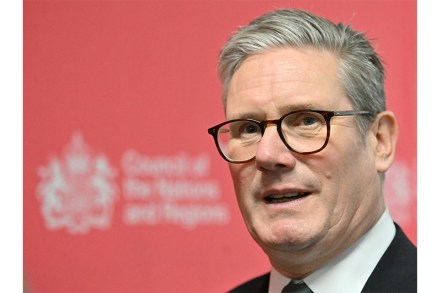Starmer’s snowflakes’ charter
I almost choked on my cornflakes when I read that the Prime Minister had said he would slash red tape and ‘rip out the bureaucracy that blocks investment’ as part of a bid to persuade global business executives to invest in UK plc. Is this the same Keir Starmer whose government has just published an Employment Rights Bill that will tip a wastepaper basket full of red tape over employers’ heads? I know all governments pledge to ‘free up’ British businesses and then smother them in new regulations, but this wins first prize. Employers will be liable if they fail to protect employees from overheard conversations, but also T-shirts, badges






















